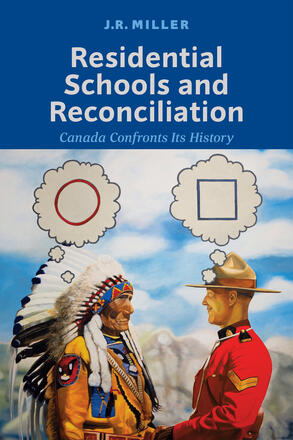
Residential Schools and Reconciliation
Canada Confronts Its History
La description
In Residential Schools and Reconciliation, award-winning author J. R. Miller tackles and explains the institutional responses to Canada’s residential school legacy. This timely and provocative work asks Canadians to accept that the root of the problem was Canadians like them in the past who acquiesced to aggressively assimilative policies.
Récompenses
- Short-listed, The Sir John A. Macdonald Prize 2018
Reviews
"In this book, Miller provides Canadians with an invaluable, insightful, and accessible resource on reconciliation in Canada. "
- Joanna Dawson
"Professor Jim Miller of the University of Saskatchewan pulls back the curtain on the historical blame game. Residential Schools and Reconciliation documents Ottawa’s handling of Aboriginal issues. This is not ancient history. It just happened."
- Holly Doan
‘For those who want to understand Canadian reconciliation attempts and their historical context specifically pertaining to residential schools, Residential Schools and Reconciliation is where they should turn.’
- Cory Kapeller
"Miller’s study does not examine the history of residential schools or draw upon horrors recounted by survivors; rather, it looks at what churches, courts, and the state itself have done in reaction, sometimes haltingly. Here his scholarship breaks new ground: few scholars have traced the nitty-gritty of how reconciliation was and is negotiated or set it so firmly in a historical context."
- Susan Neylan, Wilfrid Laurier University
"As colonial nations around the world seek pathways to post-conflict reconciliation, J.R. Miller’s timely work is an important reminder of both the potential obstacles and the healing possibilities of such initiatives."
- Leigh Anne Williams